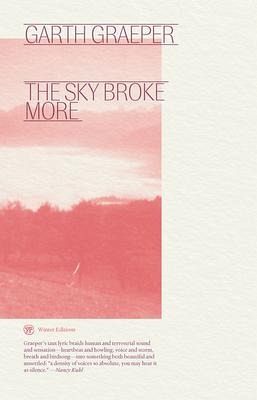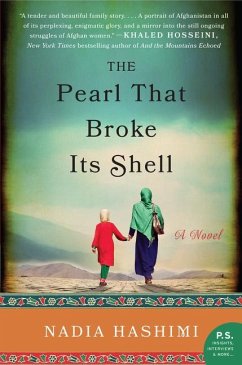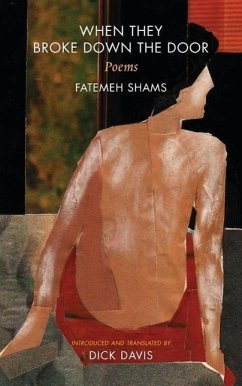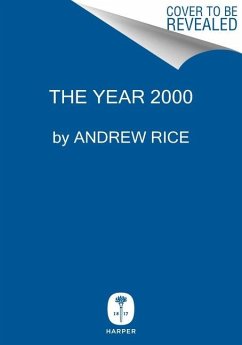Nicht lieferbar

The Sky Broke More
Versandkostenfrei!
Nicht lieferbar
Blending ecopoetics, ghost story, and sci-fi thriller, Garth Graeper's first full-length collection imagines survival in a world where nature, time, and identity are unstable and predatory. Inspired by sources as wide-ranging as Tarkovsky's Stalker, the comic book character Swamp Thing, and Romantic visionary Dorothy Wordsworth, Graeper's first full-length collection abounds with transmogrifications. Teetering between intimacy and apocalypse, no body, or tree, or sound stays intact for long. No sooner exorcized from a ghostly possession in the Lake District, the reader is driven back into the ...
Blending ecopoetics, ghost story, and sci-fi thriller, Garth Graeper's first full-length collection imagines survival in a world where nature, time, and identity are unstable and predatory. Inspired by sources as wide-ranging as Tarkovsky's Stalker, the comic book character Swamp Thing, and Romantic visionary Dorothy Wordsworth, Graeper's first full-length collection abounds with transmogrifications. Teetering between intimacy and apocalypse, no body, or tree, or sound stays intact for long. No sooner exorcized from a ghostly possession in the Lake District, the reader is driven back into the water cycle, raining down from the sky to feed plants, or reawakened from a dream, trying to grasp a hand, to remember a face. In this ecosystem, where "caught between tall lilacs / bodies spill," green meadows offer less a bucolic backdrop than a site of aggressive reclamation. Propelled by terse language and thorn-sharp images, these poems blur lines between inside and out, challenge anthropocentric notions of self, and explore the volatile space between companionship and competition in an age of dwindling resources. "The poems in The Sky Broke Moredocument the difficult work of listening and the powerful attunement it achieves--with our beloveds, with the natural world, with the dead. Graeper's taut lyric braids human and terrestrial sound and sensation--heartbeat and howling, voice and storm, breath and birdsong--into something both beautiful and unsettled: "a density of voices so absolute, you may hear it as silence."--Nancy Kuhl "In dreamlike, painterly lines, The Sky Broke Moredescribes a world that is dying and burgeoning all at once, where "sap and blood" mingle, and where 'one / pale blue flower / on the black / blooms.' Instead of finite endings, there are metamorphoses and--often painful--rebirths, while a terrible and wondrous hybridity holds sway. All is in flux but for one element: voice. In these urgent, deeply felt poems, the artistic urge is what buoys us, and lasts."--Laura Sims "Garth Graeper writes a beautiful, unsettling kind of nature poetry that can only be written by someone who digs into the dirt, tuning into the sounds, smells, textures and shapes of the natural world. What Graeper finds running through this natural world is a kind of sensory language: the world speaks to the poet with its 'tentacles of language.' It's a physical language, and it is often violent. The poems take place in nature's 'blood rain' and 'carnage, ' 'black marsh forcing/tongue/through tongue.' Graeper's poems are short but they are immersive, lively, and almost overwhelming."--Johannes Göransson "The earth of these poems is sincere and erotic, fraught with the unraveling of bodies in human damage, yet sounding to heal with each tone. Their care is impressive, and gorgeous. Insistently tactile, communicative, Graeper's 'wild need- / song' threads its ear through prose and verse with equal skill. As though holding Ceravolo to ear, the poet sounds (Dorothy) Wordsworth. Bring your heart close to the moss, travel the worm road, on tones beneath tones, 'holy mouth- / to-mouth from under / the mud.' Finding music in language, The Sky Broke Moreoffers gift of passage in dark times.--Jonathan Skinner Poetry. Environmental Studies.











